Support Our Kids支援国
SUPPORT PUR KIDS SUPPORTING COUNTRIES
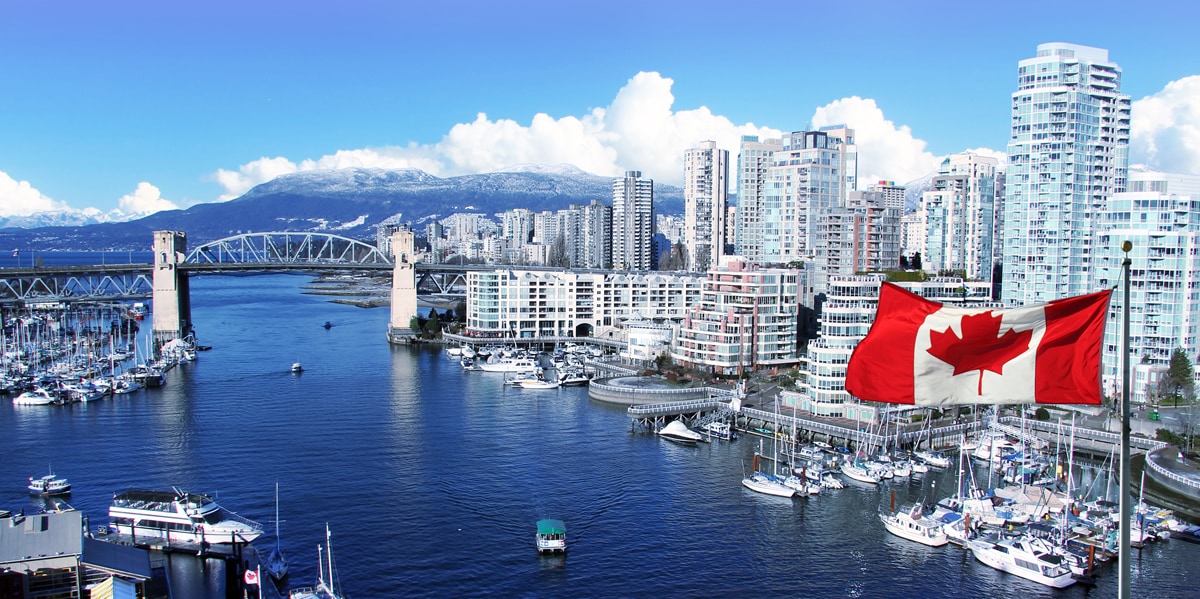
SUPPORTING COUNTRIES
カナダ
Canada
![]()
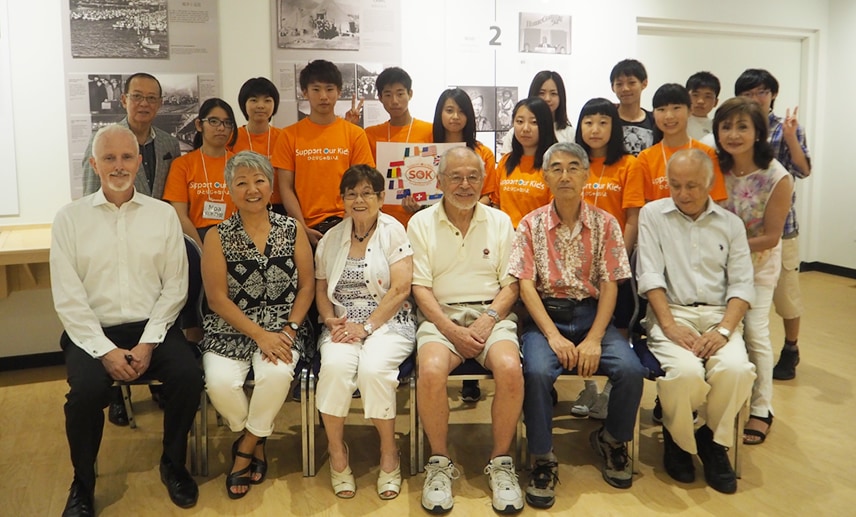
日系カナダ人、移民のレジリエンス
日系文化会館について:1963年創立の日系文化会館(JCCC)は、独自の文化、歴史、そして日系カナダ人のレガシーを全カナダ人に向け発信、提供している非営利団体です。JCCCは活発な活動を続けるコミュニティ団体として、その存在価値が広く世界で認識されています。会員5200名、その半数近くを日系人以外が占め、フェスティバル、コンサート、武道トーナメント、スペシャルイベント等で年間21万人以上の来館者を迎えています。トロント市内及びその近郊エリア(GTA)から毎年1万5千人以上の学生(生徒)が訪れ、日本の歴史、文化、日系カナダ人の経験を学んでいます。
出典:日系文化会館HP
日系人ヒストリー/第二次世界大戦体験者とのセッション
日系カナダ人ヘリテージ 森山日系ヘリテージセンターでは、日系コミュニティ史、カナダ国への貢献に対するトリビュートの創造とともに、日系カナダ人の文化、歴史、レガシーの紹介を全カナダ人に向けに行っています。毎年プログラムの一環として日系文化日系人の歴史の展示を解説していただき、第二次世界大戦の際、日系人強制収容所に収容され、幾多もの困難を乗り越えてきた経験を持つ多数の日系人の方々の体験談を聞かせていただいています。
「行く先が分からない、そしていつ戻ってこられるかもわからない。そんな旅に出ることを想像してみてください。あなたなら、何を一緒に持っていきますか?何を置いていきますか?また、どんな気持ちになりますか?」この言葉でセッションは始まります。多くの移民一世の人たちはより豊かな生活を夢見てカナダに移住してきました。カナダでは漁業や林業に携わり、みんな一生懸命に働き、それぞれ家を持ち、生活の地盤を固めていきました。真珠湾攻撃を発端に、日本は第二次世界大戦に参戦することになりました。たとえカナダ生まれのカナダ人であっても、日本人の血を受け継ぐすべての人々は、自分の家、財産、ビジネスなどすべてを没収され、強制収容所、ゴーストタウン、道路建設の労働キャンプなどの捕虜収容所に送られました。東日本大震災を経験した子ども達の経験を共有し、第二次大戦、異文化で生きていく中での困難や醍醐味をうかがいながら日系人の歴史を知ることで、自身や東北の将来について大切な事を学ぶ貴重な機会となっています。
子ども達の印象に残った言葉
- 言語の習得、文化の学習と適応、勉強は一生続いていく。その中で自分の持っているものを活かしていくことが大切。
- 人を恨まないこと、常に人に感謝する事
- 第二次世界大戦からの復興、東日本大震災からの復興は似ているところがある。何度も困難を乗り越えてきた。
震災時、がれきの中に埋もれた車の側面に書かれた「夜の後には朝が来る。」という言葉があった。
苦しい時があっても、必ず良い時が来る。希望を持って頑張っていきましょう。 - 人生において最も重要なものは人とのご縁。カナダ(トロント)の日系人社会はもちろんのこと、多くの人と支え合いながら生きている。
- 海外に出るからこそ見える日本の課題やすばらしさもある。興味があるなら異文化にもどんどん挑戦してほしい。
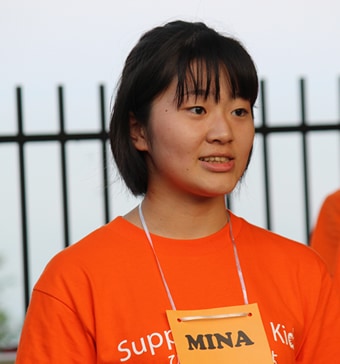 山内海奈(宮城県)
山内海奈(宮城県)
JCCCに行って日系人の歴史や第二次世界大戦にて行われた日系人の強制収容について学びました。多くの1世、2世、3世、4世などについて知ることができました。1番心が傷んだのは、日本人が強制収容されていたということです。自分と同じくらいの年齢の人がたった1つのスーツケースに荷物をまとめて家を離れなければならないという気持ち、その時の心の痛みが感じられる瞬間でした。皆さんは”24時間以内に1つのスーツケースに荷物をまとめて強制収容所に行くとしたら何を持っていきますか?私は衣類なんかじゃなく、大切な人々との思い出の品をかき集めて持っていくでしょう。私にとって大切なものはやはり周りの人だということに気付かされた1日でした。
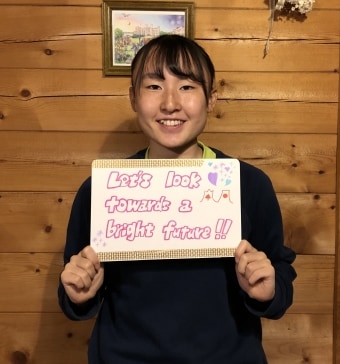 鈴木さくら(岩手県)
鈴木さくら(岩手県)
JCCCでは、実際に第二次世界大戦の際に迫害を受けた方の話を聞く時間がありました。私のグループで話してくださった方は、カナダに若いころ移り住んだ方でした。日本で経験した戦争のことや、空襲から逃げた話など普段は聞くことが出来ないような話しをしていただき、貴重な体験をすることができました。私にとって海外で暮らせることは夢のようなことではないかと思っていましたが、実際に海外で暮らしてみると改めて気づいた日本の素晴らしさがあると教えていただきました。
【Resilienceについて語りあう】
2018年には、日系文化会館にて菅野武医師(2011年TIME誌「世界で最も影響力のある100人」に選出)の講演会が行われました。東日本大震災の際、南三陸町の公立志津川病院で患者の避難や治療に当たられた経験に基づく、「Resilience」についてお話し頂き、将来の夢について語り合うお時間を頂きました。
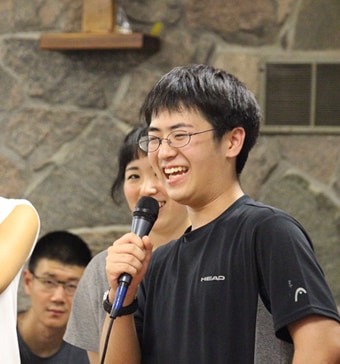 佐藤謙宙(宮城)
佐藤謙宙(宮城)
お話では、第二次世界大戦中の日系人への差別の歴史や、震災で大変な経験をした菅野医師のお話を聞きました。その中でも、辛い事も終わってしまえば、いい思い出という言葉が心に残りました。
世界からの支援
東日本大震災とカナダからの支援
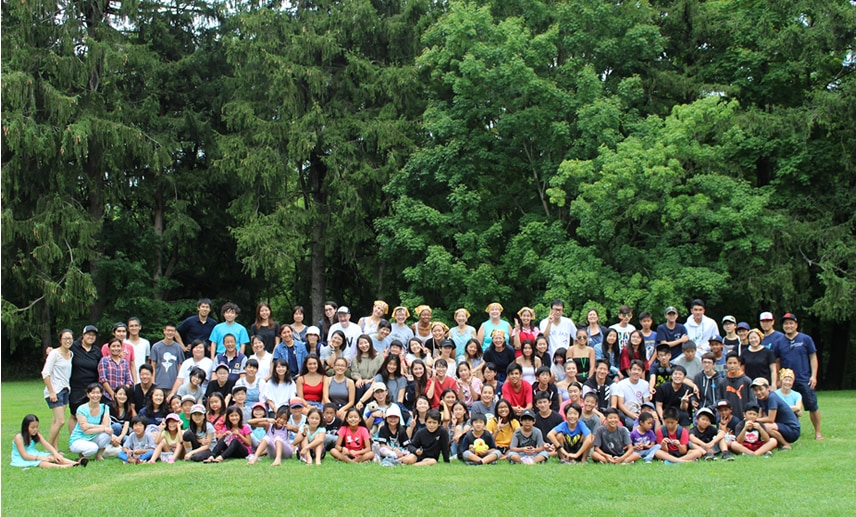
カナダ政府は、2011年3月11日の東日本大震災と、これに続く原子力発電所事故の発生後、直ちに日本政府の関係者と連携し、全面的な支援を申し入れた。震災からわずか数日後、日本政府からの公式要請を受けて、カナダ政府は地震と津波の被害を受けた人々の緊急のニーズを満たすため、非常用備蓄物資から保温性の高い羊毛素材の毛布約2万5000枚を提供することを発表した。さらに、二度目の要請に応えて、カナダ政府は原子力発電所事故への対応に当たる関係者のために、携帯型の放射線検出器約150台と線量計約5000台を提供した。また、福島第一原子力発電所の事故への対処を支援するため、カナダ人の専門家2名をウィーンの国際原子力機関(IAEA)に派遣した。
出典:在日カナダ大使館HP
メイプル館
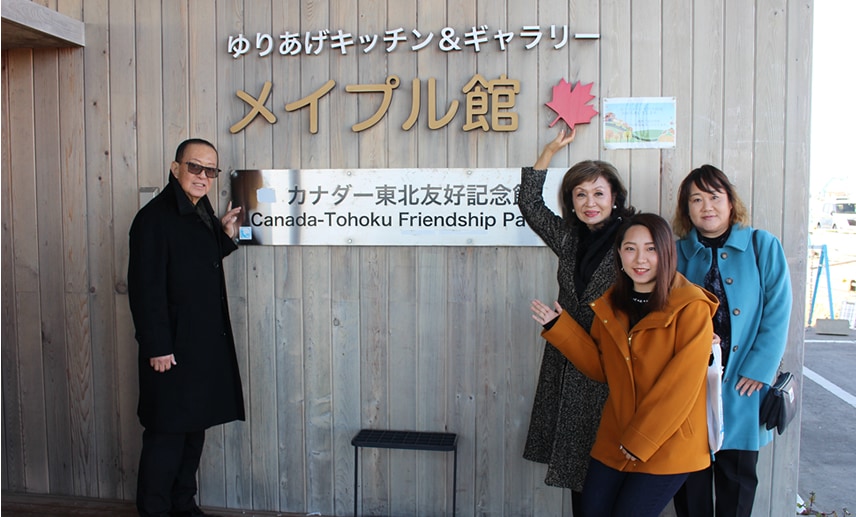
カナダ連邦政府とブリティッシュコロンビア州およびアルバータ州政府、カナダ林産業界並びにカナダウッドグループが一体となり、被災地域のコミュニティ再生に役立つ施設をカナダ材で建設することを主な目的としたプロジェクト「カナダ-東北復興プロジェクト」では、「ゆりあげ港朝市 メイプル館」(宮城県名取市閖上)等計4つの施設が建設され、活用されています。メイプル館は朝市のシンボル的建造物であり、震災学習のDVD上映・講話も実施されています。
Support Our Kidsカナダホームステイ
2013年より、カナダ、トロントにてホームステイプログラムの受け入れをして頂いております。チャコ瀬戸山氏、ジェームズ松本氏を中心に、SOK in Torontoとして現地で多くのボランティアの皆様のご協力のもとチャリティイベント、ファンドレイジング、ホームステイプログラム構成のご協力をして頂いております。カナダならではの自然や魅力を現地の子ども達とともに体験し交流を深め、多文化社会、日系人の歴史を学ぶことで復興のリーダーへの資質を養います。現地での経験を活かし、プログラム後にもう一度自分の力でカナダへ渡り、後輩のホームステイプログラムを支えるOB/OGが毎年参加しているのも、カナダプログラムならではの特徴です。
日系福音協会サマーキャンプ
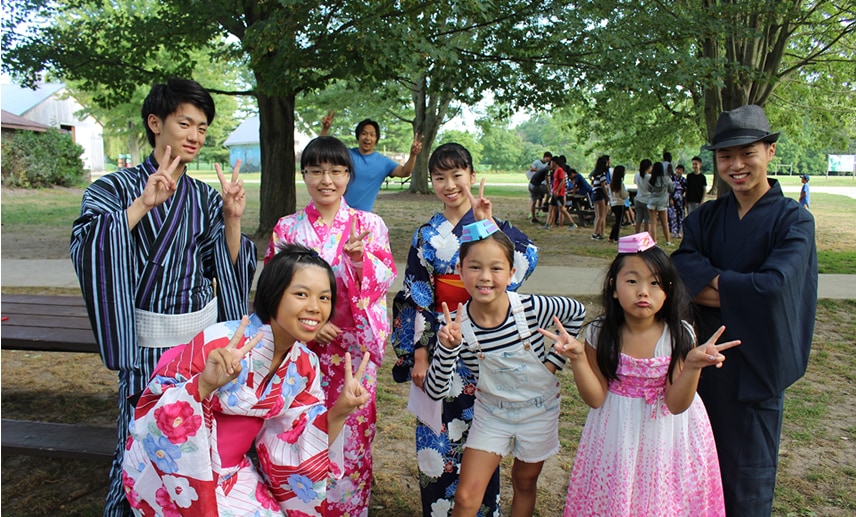
トロント日系福音教会(Japanese Gospel Church of Toronto)主催のサマーキャンプに一週間参加します。トロント市内から2時間ほどの郊外の自然に囲まれたキャンプ地(ロンドン)で、普段の生活から離れカナダの同年代の子ども達と共同生活を体験します。ESL(英会話教室)では自己紹介、カナダの地理や歴史、著名人、日本との違いについて実践的に学びます。また、震災プレゼンテーション、日本文化のプレゼンテーションを行い、日々聖書について学ぶことでお互いの文化を理解しながら交流を深めます。
Variety Village/共生社会
全ての施設が健常者と障がい者が使用できる施設となっており、スポーツを行うだけの施設ではなく、キャンプを開催するなどコミュニティ施設として開放されている公益財団が運営する多目的体育館です。2013年、2014年に訪問させて頂き、車椅子バスケットボール等、各種スポーツを体験させて頂きました。共生社会、多文化主義社会と呼ばれるトロントではバリアフリーや異なるバックグラウンドを持つ人々に配慮する設備や光景が数多く見られます。多様性を実際にカナダで体験し、東北の復興にも活かせることはないかと考えました。
文化交流プログラム
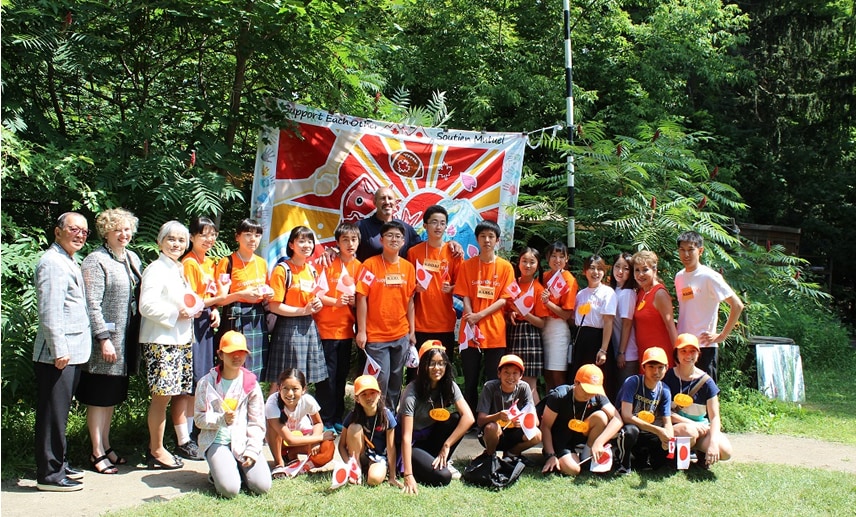
日加修好90周年である2019年、トロントにあるHolland Bloorview Kids Rehabilitation HospitalのSpiral Gardenにて、交流プログラムを開催して頂きました。現地トロントの子ども達、病院の子ども達との工作・交流アクティビティに加えて、両国の繋がりへの感謝の気持ちを込めた、復興の象徴でもある大漁旗を作成。参加者全員で手形を押し完成させることができました。大漁旗はラグビーカナダ代表チームに寄贈され、日本で開催されたラグビーワルドカップでは国内を共に移動し、一年後にトロントに戻ってくることとなりました。(カナダチームは釜石でも試合が行われる予定でしたが台風で中止となりました。)新型コロナウイルスの影響で予定は遅れておりますが、2021年3月に病院に寄贈され、植樹した桜とともに、今後の繋がりのシンボルとなります。
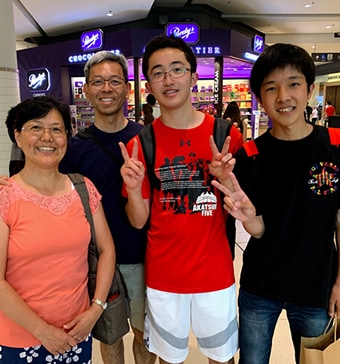 畠山幸大(宮城県)
畠山幸大(宮城県)
ホームステイで学んだことのひとつは、異国の文化、特に宗教についてです。日本にいるとあまり宗教の意識はありませんが、カナダは違いました。毎週教会に通って聖書研究をしたり、毎日お祈りをしたり、とても信仰が深いことがわかりました。様々な問題が起こる原因のひとつに宗教があります。以前まではそんな架空の価値観の違いで争いを起こすなんて、と思っていました。しかし、生活に強く根付いた重要な価値観として尊重し、今後は人と の関わり方に気をつけていきたいと思います。また、印象に残っている言葉は「地球人になる」です。この言葉は、ジェームズ松本氏から頂きました。国や人種、年齢、 性格、性別などに関わらず、笑顔で積極的に接してくれたカナダの人たちの優しさは、私が最も感動したことの一つです。私も、誰に対しても優しく素直でいられるような、地球というグループの一員でありたいと思います。地球人という言葉は、グローバル化と深く関係していると思います。しかし、グローバル化にある闇についても考えなければなりません。グローバル化に飲み込まれず、世界の中で自分の確かな立ち位置を確立し、日本を引っ張っていけるような存在になりたいと思います。視野が広がりすぎたあまり、具体的にどうなるかはまだわかりません。今後も思考を続け、少しずつ確立していきます。

Resilience of Japanese-Canadian and Immigrants
About the Japanese-Canadian Cultural Centre (JCCC): Founded in 1963, the Japanese Canadian Cultural Centre (JCCC) is a not-for-profit organization which celebrates the unique culture, history, and legacy of Japanese Canadians for the benefit of all Canadians. The JCCC is recognized worldwide as an important and vibrant community institution. JCCC ・serves 5,200 members, almost half of which are of non-Japanese ancestry. ・attracts over 210,000 visitors to its festivals, concerts, martial arts tournaments and special events annually. ・welcomes more than 15,000 students from the Greater Toronto Area and beyond visit the JCCC each year to participate in seminars on Japanese history, culture, and the Japanese Canadian experience. Source: Japanese Canadian Cultural Centre website
History of Japanese Canadian / Session of World WarⅡ experience
The objectives of the Moriyama Nikkei Heritage Centre include to bring the story of Japanese Canadian heritage to a global audience, and link it with the greater narrative of Japanese diaspora for broader awareness to host a variety of programs and activities with an emphasis on education, aimed at both general and specialized audiences. Each year, as part of the program, students receive an explanation of the exhibition of Japanese-Canadians history and have a session with whom overcame the hardships of incarceration in internment camps during World War II. “Imagine going on a journey without knowing where you will go and when you will return. What will you bring with you? What will you leave behind? And how will you feel about it?”, the session began with these remarks. Many issei (first generation) immigrated in the hope of a better life – worked in fishing, limber industries. After many years of working hard, many were able to own a house, had friends, had jobs, and went to school. Pearl Harbor happened, and suddenly America and Japan officially entered WWⅡ. All Japanese people, whether you were born in Canada or not, had to leave their homes and businesses and communities, and sent to live as prisoners in interment camps, ghost towns, road camps, or prisoner of war camps. The students also share their experiences of the Great East Japan Earthquake in the session. Learning about the Japanese ancestry’s history with discussing World War II and the difficulties and joys of living in a different culture, the children experience valuable opportunities to acquire important things about themselves and the future of Tohoku.
Words that left a huge impact in the children
- Studying languages, learning and adapting to a culture will last a lifetime. It is important to make the most of what you have.
- Always be grateful and do not bear grudges against people.
- There are similarities between the recovery from World War II and the recovery from the Great East Japan Earthquake. We were able to overcome difficulties many times. During the earthquake, there was a phrase written on the side of a car buried in the rubble: “After the darkest night comes the brighter day.” Even though there are hard times, there will always be good times. Let’s try our best with hope.
- The most important thing in life is relationship with people. The Japanese community in Toronto, Canada is of course supporting each other to live.
- Going overseas makes you see and appreciate some wonderful aspects of Japan. And if you are interested in learning foreign culture, challenge yourself to learn it.
 MINA (Miyagi prefecture)
MINA (Miyagi prefecture)
I went to the JCCC and learned about the history of people with Japanese ancestry and their hardships during World War II. I learned a lot of things from different generations. The most heartbreaking part was when I learned that they were forced to live in internment camps. It was the moment when I could feel the pain of someone like my age who left home with only one suitcase full of belongings. If I were asked what I would bring if I had to pack one suitcase and go to a concentration camp in 24 hours, I wouldn’t take clothes. I would bring a collection of memorabilia from my loved ones. It was the day that made me realize that what matters most is the people around me.
 SAKURA (Iwate prefecture)
SAKURA (Iwate prefecture)
At the JCCC, we had time to listen to the stories of people who were actually persecuted during World War II. The person who spoke to my group was a person who moved to Canada when he was young. He talked about his living conditions during the war in Japan, how he escaped from air raids, and other things that we usually don’t get to hear, and it was a valuable experience for me. I thought it would be a dream come true for me to be able to live abroad, but I was told that there are wonderful things about Japan that one would only be able to notice anew when one actually lived abroad.
 KENJI (Miyagi prefecture)
KENJI (Miyagi prefecture)
In the session, I learned about the history of discrimination against the Japanese-Canadian people during World War II. In his talk, Dr. Kanno shared the difficult experience he had during the earthquake. One of the sayings that stuck in my mind was this: “Painful things are good memories once they are over.”
Support from the World
The Great East Japan Earthquake and Canada’s Assistance

Following the Great East Japan Earthquake on March 11, 2011 and the subsequent nuclear power plant accident, the Government of Canada immediately coordinated with Japanese officials to offer its full support. Just a few days after the disaster, at the official request of the Japanese government, the Government of Canada announced that it would provide approximately 25,000 warm wool blankets from its emergency stockpile to meet the immediate needs of those affected by the earthquake and the tsunami. In addition, in response to a second request, the Canadian government has provided approximately 150 portable radiation detectors and 5,000 dosimeters for those involved in the rescue operations of the nuclear power plant accident. Furthermore, two Canadian experts were dispatched to the International Atomic Energy Agency (IAEA) in Vienna to assist in dealing with the accident at the Fukushima Daiichi Nuclear Power Plant. (Source: Embassy of Canada to Japan website)
Maple-kan pavilion

The Federal government of Canada, the Province of British Columbia, Province of Alberta, the Canada’s forest products industry, and the Canada Wood Group have joined forces to support the “Canada-Tohoku Reconstruction Project”, which aims to build facilities using Canadian lumber in rebuilding communities in the affected areas. A total of four facilities, including the Yuriage Port Morning Market Maple-kan pavilion (Yuriage, Natori city, Miyagi prefecture), have been built and are being utilized. The Maple-kan is the symbolic building of the morning market, and it is also used for studying the earthquake disaster.
Support Our Kids Canada Homestay
Support Our Kids homestay program in Toronto, Canada has begun in 2013. With great support from Ms. Chako Setoyama, Mr. James Matsumoto, and many local volunteers, SOK in Toronto organizes charity event, fundraising and homestay program. The program is designed to provide the children with the opportunity to experience and interact with the unique nature and attractions of Canada, as well as to learn about the multicultural society and the history of the people with Japanese ancestry. One of the unique features of the program is that there are many alumni and former students who go back to Canada on their own after the program every year to support the homestay of younger students.
Japanese Gospel Church of Toronto Summer Camp

Students participate in a week-long summer camp organized by the Japanese Gospel Church of Toronto. During the ESL (English conversation class), students learn about self-introduction, Canadian geography and history, famous people, and the differences between Canada and Japan. They also deepen their understanding of each other’s culture through presentations about the earthquake experiences, learning Japanese culture, and studying the Bible daily.
Variety Village / Symbiotic Society
A community gymnasium that has sports facilities not only for normal individuals, but also for the disabled as well. It is a multi-purpose community facility that can also hold camps. The students visited the gymnasium in 2013 and 2014, and experienced various sports such as wheelchair basketball. Toronto is known as a symbiotic society and a multicultural society, and there are many facilities and sights that are accessible and considerate of people with different backgrounds. The students found out that they could actually apply their experiences about the diversity in Canada to the reconstruction of Tohoku.
Cultural Exchange Program

In 2019, during the 90th anniversary of Japan-Canada diplomatic relations, the students were invited to hold an exchange program at the Spiral Garden of Holland Bloorview Kids Rehabilitation Hospital in Toronto. In addition to the craft and exchange activities with local Toronto children and children from the hospital, they made a big fisherman’s flag as symbol of recovery to express our gratitude for the connection between the two countries. All participants made the flag by stamping their hand prints. The flag was donated to the Canadian national rugby team, Rugby Canada, which they brought to Japan for the Rugby World Cup, and returned to Toronto a year later. The Canadian team was also scheduled to play in Kamaishi, but the game was cancelled due to a typhoon. Although the schedule has been delayed due to the COVID-19, together with a cherry tree donated to the hospital in the fall of 2019, the flag will become the symbol of our future connection.
 KODAI(Miyagi prefecture)
KODAI(Miyagi prefecture)
One of the things I learned during my homestay was about cultural differences, especially religion. In Japan, we don’t have much awareness regarding religion, but it was different in Canada. I understand some people go to church every week to do Bible studies, pray every day, and find out that they were very religious. One of the causes of various problems is religion. Before, I used to think that differences in values cause conflicts. However, I have learned to respect it as an important value that is strongly rooted in our lives. In the future, I would like to be more careful on how I interact with others. In addition, the phrase that left a deep impression on me was “Become a global citizen.�This phrase was given to me by Mr. James Matsumoto. One of the things that impressed me the most was the kindness of the Canadian people who treated me positively with smiles, regardless of my country, race, age, personality, or gender. I would like to be a member of the group called Earth. I think the term ”earthlings” has a lot to do with globalization. However, we also need to think about the darkness that exists in globalization. Instead of being swallowed up by globalization, I would like to establish my own solid position in the world and become a person who can lead Japan. My vision has expanded so much that I still don’t know what exactly will happen. But I will continue to think about it and create it gradually.
SUPPORTING
COUNTRIES
![]()
SUPPORTING COUNTRIES
ニュージーランド
New Zealand
![]()
SUPPORTING COUNTRIES
フランス共和国
France
![]()
SUPPORTING COUNTRIES
アイルランド
Ireland
![]()
SUPPORTING COUNTRIES
カナダ
Canada
![]()
SUPPORTING COUNTRIES
オーストラリア連邦
Australian Federation
![]()
SUPPORTING COUNTRIES
スイス連邦
Switzerland
![]()
SUPPORTING COUNTRIES
グレートブリテン及び
北アイルランド連合王国
United Kingdom of Great Britain and Northern Ireland
![]()
SUPPORTING COUNTRIES
アメリカ合衆国
United States of America
![]()
SUPPORTING COUNTRIES
サンマリノ共和国
Republic of San Marino
![]()
SUPPORTING COUNTRIES
ポーランド共和国
Republic of Poland